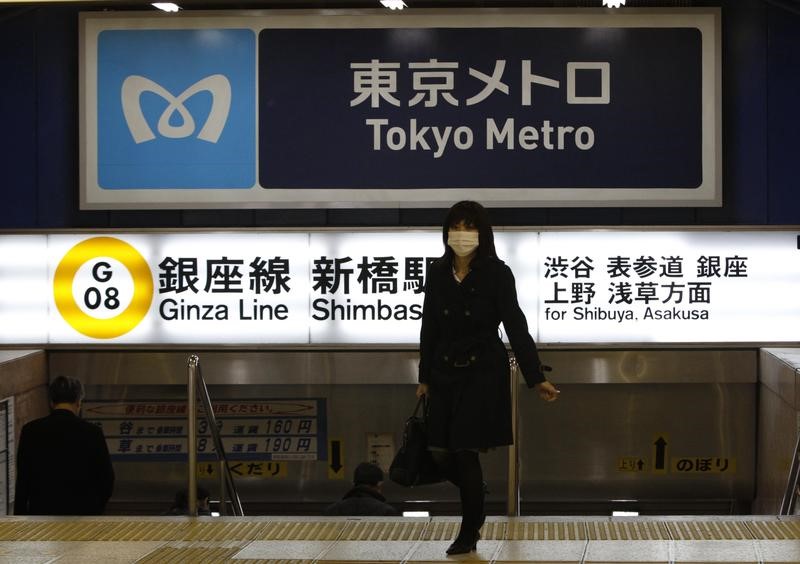ION expands ETF trading capabilities with Tradeweb integration
Investing.com-- Consumer price index inflation in Tokyo grew substantially less than expected in April, sinking below the Bank of Japan’s annual target and somewhat complicating expectations for a more hawkish stance from the central bank.
Headline Tokyo CPI rose 1.8% year-on-year in April, government data showed on Friday. The reading was much weaker than expectations that it would remain steady at the 2.6% seen in the prior month.
Tokyo core CPI, which excludes volatile fresh food prices, rose 1.8% in April, weaker than expectations of 2.2% and slowing substantially from the 2.4% seen in March.
A core CPI figure that excludes both fresh food and energy prices fell 1.8% in April from 2.9% in the prior month. The reading- which is closely watched by the BOJ as a gauge of underlying inflation, was now below the central bank’s 2% annual target for the first time since September 2022.
Friday’s reading showed that a rebound in Japanese inflation seen over the past two months had appeared to be largely temporary, and that consumer spending remained weak in the country. Tokyo inflation usually acts as a bellwether for broader inflation in the country, given that the Greater Tokyo area is a major driver of the Japanese economy.
Friday’s reading also comes just hours before the conclusion of a BOJ meeting, where the central bank is widely expected to keep interest rates steady after raising them for the first time in 17 years in March.
Softer inflation gives the BOJ less impetus to hike interest rates further, while also complicating the prospect of a more hawkish stance from the central bank.
Governor Kazuo Ueda is expected to offer a stronger outlook on Japanese inflation for 2024. Ueda was also expected to offer some hawkish signals to boost a battered yen, which was trading at 34-year lows on Friday.
But stickier inflation could still be on the cards for Japan, especially with consumer spending set to ramp up on the back of bumper wage hikes this year. Higher wages were also a key consideration for the BOJ to begin tightening its ultra-loose policy.
